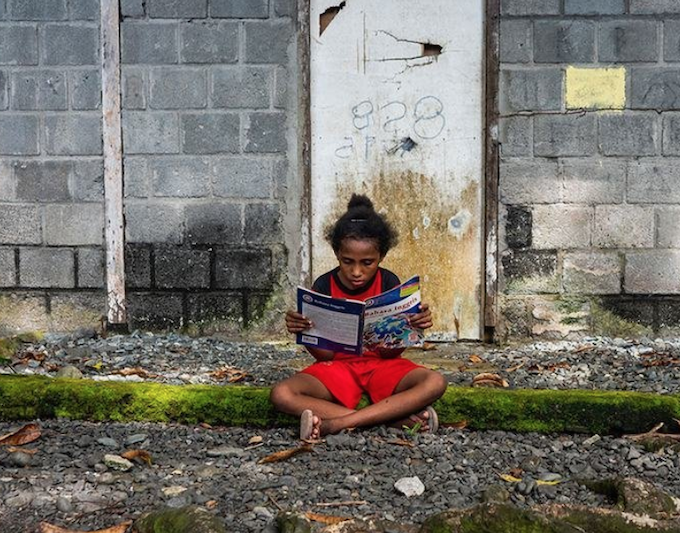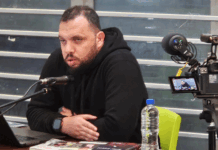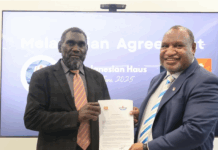
Shocking abuses against indigenous Papuans have been taking place in Indonesia, say United Nations-appointed human rights experts who cite child killings, disappearances, torture and enforced mass displacement.
“Between April and November 2021, we have received allegations indicating several instances of extrajudicial killings, including of young children, enforced disappearance, torture and inhuman treatment and the forced displacement of at least 5000 indigenous Papuans by security forces,” the three independent experts said in a statement.
Special Rapporteurs Francisco Cali Tzay, who protects rights of indigenous peoples, Morris Tidball-Binz, who monitors extrajudicial, summary or arbitrary executions, and Cecilia Jimenez-Damary, covering human rights of Internally Displaced Persons, called for urgent humanitarian access to the region and urged the Indonesian government to conduct full and independent investigations into the abuses.
They said that since the escalation of violence in December 2018, the overall number of displaced has grown by 60,000 to 100,000 people.
“The majority of IDPs [internally displaced persons] in West Papua have not returned to their homes due to the heavy security force presence and ongoing armed clashes in the conflict areas,” the UN experts explained.
Meanwhile, some IDPs have been living in temporary shelters or stay with relatives.
“Thousands of displaced villagers have fled to the forests where they are exposed to the harsh climate in the highlands without access to food, healthcare, and education facilities,” the Special Rapporteurs said.
Relief agencies have limited access
Apart from ad hoc aid deliveries, humanitarian relief agencies have had limited or no access to the IDPs, they said.
“We are particularly disturbed by reports that humanitarian aid to displaced Papuans is being obstructed by the authorities”.
Moreover, severe malnutrition has been reported in some areas with lack of access to adequate and timely food and health services.
“In several incidents, church workers have been prevented by security forces from visiting villages where IDPs are seeking shelter,” the UN experts said.
They stressed that “unrestricted humanitarian access should be provided immediately to all areas where indigenous Papuans are currently located after being internally displaced.
“Durable solutions must be sought.”
🇮🇩#Indonesia: UN experts concerned by deteriorating human rights situation & abuses against #indigenous Papuans, incl. child killings, disappearances, torture & mass displacement, in Papua & West Papua. They call for humanitarian access & investigations: https://t.co/idEsWJDBvM pic.twitter.com/mwFQyxgkCc
— UN Special Procedures (@UN_SPExperts) March 1, 2022
‘Tip of the iceberg’
On a dozen occasions, the experts have written to the Indonesian government about numerous alleged incidents since late 2018.
“These cases may represent the tip of the iceberg given that access to the region is severely restricted making it difficult to monitor events on the ground,” they warned.
Meanwhile, the security situation in Highlands Papua had dramatically deteriorated since the 26 April 2021 killing of a high-ranking military officer by the West Papua National Liberation Army in West Papua.
The experts pointed to the shooting of two children, aged two and six, on October 26, shot to death by stray bullets in their own homes, during a firefight. The two-year-old later died.
End violations
“Urgent action is needed to end ongoing human rights violations against indigenous Papuans,” the experts said, advocating for independent monitors and journalists to be allowed access to the region.
They outlined steps that include ensuring all alleged violations receive thorough, “prompt and impartial investigations”.
“Investigations must be aimed at ensuring those responsible, including superior officers where relevant, are brought to justice. Crucially lessons must be learned to prevent future violations,” the Rapporteurs concluded.
Special Rapporteurs and independent experts are appointed by the Geneva-based UN Human Rights Council to examine and report back on a specific human rights theme or a country situation.
The positions are honorary and the experts are not paid for their work.













































